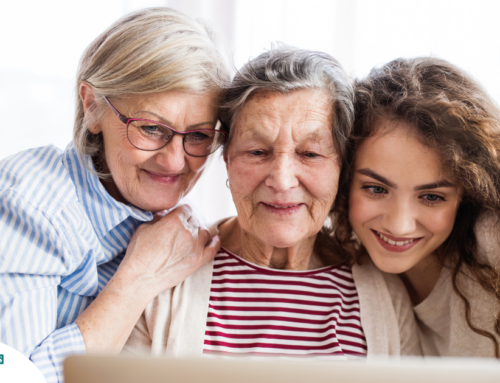As an informal caregiver for a loved one, have you ever felt that “there is no light at the end of the tunnel?” If you have, don’t feel alone. Eventually, just about all informal caregivers are faced with the question, “Is it time to bring in help?”
There are many causes that lead caregivers to arrive at this point, such as the declining health and/or mobility of the aging adult they’re caring for, or their work schedule and limited time off are dictating a change in caregiving arrangements. But, the number one reason they feel it’s time to accept help: they are experiencing “caregiver burnout.”
Let’s take a look at what caregiver burnout is and what its symptoms are.
What is Caregiver Burnout?
Caregiver burnout is not taken lightly by psychologists. They define it as “a debilitating psychological condition brought about by unrelieved stress.”
This stress can be caused by the changes in family dynamics with the child now acting as the parent, financial pressures, or general disruption of work and family life.
Know the Symptoms of Caregiver Burnout
Just like knowing the symptoms of a cold or flu is important, it’s essential that informal caregivers know the signs of caregiver burnout. They are:
- A lack of energy
- Overwhelming fatigue
- Sleep problems (too much or too little)
- Changes in eating habits; weight loss or gain
- A feeling of hopelessness
- Withdrawing from, or losing interest in, activities you once enjoyed
- Neglecting your own physical and emotional needs
- Feeling like caregiving is controlling your life
- Becoming unusually impatient, irritable, or argumentative with the person you’re caring for and/or with others
- Increasing anxiety about the future
- Depression or mood swings
- Difficulty coping with everyday things
- Headaches, stomachaches, and other physical problems
- Lowered resistance to illness
If you’re experiencing an increasing number of these symptoms, there are things you can do to take care of yourself, which also means you’ll be taking better care of your loved one.
Treating That Burnout as an Informal Caregiver
There are actions you can take to help you control caregiver burnout: seeing your physician for a checkup, pampering yourself with a massage or spa day, taking a long bath, or calming yourself through prayer or meditation
These are all nice short-term fixes, and they might be all you can do right now. But it’s important that you know the number one treatment for caregiver burnout: ask for help.
Needing help doesn’t make you a weak person or a poor caregiver. It means you’ve reached the point where you can’t do it alone, and the best thing you can do for the person you’re caring for is to bring in assistance.
If You Need a Hand as an Informal Caregiver, AmeriCare Plus Can Help
For over 25 years, we’ve helped informal caregivers throughout Virginia make the transition to having a professional caregiver join them in caring for their loved one. We offer a full range of services, including:
- Companion care
- Dementia care
- Personal care
- Post-operative care
- Respite care
We can help you take the first step in accepting help by offering you a free in-home consultation. We’ll get to know each other, talk about your loved one’s needs, and develop an action plan. Our caregivers are compassionate, and our rates are affordable.
To schedule your free consultation, call us or fill out our contact form today. We look forward to helping.
Continue Reading
Get a personal assessment.
Call us today at 1.844.407.2273
Schedule your free, no-obligation assessment today!









